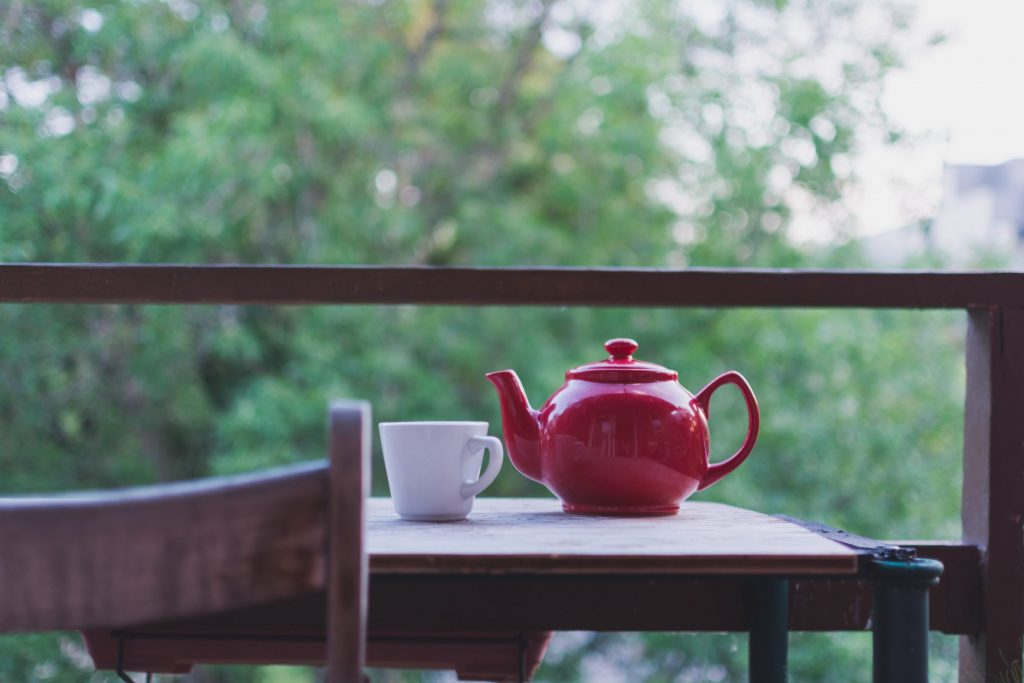Words by: Natasha Fracc
I know what panic looks like. I saw it once lying in a hospital bed expecting to die. I know what fear feels like. I felt it once, for 3 years, trying to overcome my physical limitations, my fear of dying and the fear of losing air in my lungs.
I’ve been in this place before, where you think you’re alone, and nothing will save you. And I made a pact with my soul, and with God, that if I ever made it through my storm alive, I would never fear anything again. I promised I would stay curious, I would try harder, I’d say “yes” more, “I love you” more, “I need help” more.
I’d make more time for self-care and for cups of tea on the patio and for things that really mattered to me, like breathing and praying. I promised I’d be a better woman, wife, friend. All this, in a tradeoff for a second chance at my life. And now, some years later, I’m here again. But this time, I’m with you. In the eye of a global storm that is drawing its sword in a battle against our vulnerability and fear.
It seems the world is divided into shouts of do’s and don’ts.
If you ‘do’ you might be spared a sickness and if you don’t ‘do’, you risk being frowned upon and judged. We’re drowning in the wave of Covid-19 precautions and WhatsApp warnings and doomsday broadcasts and the fear in our neighbours’ eyes when we walk an inch too close. The fear is real, and it’s everywhere.
As a species we owe it to ourselves to replace this fear with curiosity, opportunity, and presence.
Behavioural scientists tell us that while optimists are statistically more successful in life than their pessimist counterparts, they also tend to have better physical health. Why?
Because choosing to be an Optimist “involves highly desirable cognitive, emotional, and motivational components” (Reynolds, 2011). Positive thinking, especially in a global era of crises, increases mental productivity and ramps up the emotional space for creativity and, Serotonin (the happy hormone). As a result, this ‘thinking’ unfolds as ‘mental rewiring’ – a term coined by scientists and holistic doctors when the brain changes in response to stimuli – that leads to an increase of healing chemical properties in the body.
There is a call to unite and heal as a human species right now.
Let’s do it for the right reasons. Not because our commonality lies in anxiety or in our hunger for rising statistics. We should unite because we are capable of positivity, love and compassion.
We all have the ability to lean into these trying times with an attitude of hope. It might be our responsibility to shut our doors, but it is also, if not more-so, our responsibility to choose positive conversations over negative ones; to teach our kids what faith is in the time of uncertainty, to pray for our medics and doctors working overtime to save the world, to sit with our small businesses and ask how we can help; to fill our trolleys with a little extra – not just for our own cupboards – but for our teams, our staff, our elderly and our underprivileged citizens.
Latching ourselves up from our ever present greatness is not the answer.
Each of us in good health still has this choice. We can choose to be a vehicle of love and legacy during these times, or we can choose the path of victim and panic and emotional isolation.
Don’t stop laughing, or singing or talking, about random things that still set your soul on fire. Your positivity makes you beautiful. It makes you a leader. Don’t cut yourself off from your optimism and your endorphins and your ability to affect lives and livelihoods.
Don’t lose sight of the trees and the birds and the sunset and why we came here in the first place. For it’s the fear that is contagious; and it’s the fear that will ultimately kill us in the end.

